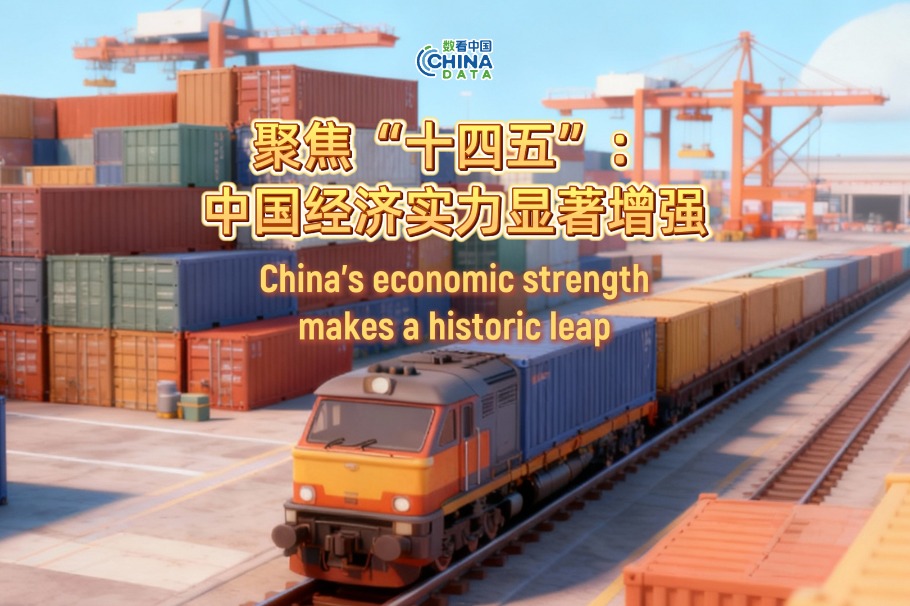China and the World Trade Organization

III. China’s Significant Contribution to the World After Accession to the WTO
China steadfastly pursues a mutually beneficial opening-up strategy, upholds the WTO’s principle of free trade, and has lived up to its responsibilities as a major country in the process of opening-up. From its WTO accession in 2001 to the Belt and Road Initiative in 2013, China has embraced the world with open arms, made a significant contribution to promoting international trade and increasing global wellbeing, and become a key anchor and driver for the world economy.
1. Boosting world economic recovery and growth
Since its accession to the WTO, China has accelerated its reform and opening-up process and economic growth. China’s development is a forceful driver of global economic growth.
In 2016, China’s GDP accounted for 14.8 percent of the world total, up by 10.7 percentage points over 2001, calculated at exchange rates. Since 2002, China’s contribution to global economic growth has approached 30 percent on average. The Chinese economy has become a major engine for global economic recovery and growth.
China has quickened its pace in promoting new industrialization, IT application, urbanization, and agricultural modernization, created enormous opportunities for consumption and investment, and generated more jobs for the world. According to a report released by the International Labor Organization, “Effects of China on the Quantity and Quality of Jobs in Latin America and the Caribbean”, China created 1.8 million jobs for Latin America and the Caribbean region from 1990 to 2016.
China’s rapid development has made tremendous contributions to the cause of global poverty reduction. Over the past 40 years of reform and opening-up, the Chinese people have emerged from scarcity to abundance and from poverty to moderate prosperity. According to current UN standards, more than 700 million Chinese people have been lifted out of poverty, accounting for more than 70% of the global total over the same period. This represents the largest contribution to poverty reduction in the world.
2. Foreign trade development benefiting the world
Since China’s entry into the WTO, China’s foreign trade has maintained sustained development, benefiting more than 1.3 billion Chinese and other peoples across the world.
Confronted with unprecedented difficulties and challenges including the global financial crisis in 2008, China has taken effective measures to stabilize and revitalize its foreign trade. According to WTO statistics, China’s imports accounted for 10.2 percent of the world total merchandise import in 2017, and its exports 12.8 percent, making China a major trade partner of more than 120 countries and regions. China’s exports have provided high-quality and inexpensive products to businesses and people around the world. From 2001 to 2017, China’s imports increased by an annual average of 13.5 percent, 6.9 percentage points higher than the global average; and China has become the world’s second largest importer. Since 2009, China has been the largest export market for the LDCs, and absorbed 20 percent of their exports.
China’s services imports increased from USD39.3 billion in 2001 to USD467.6 billion in 2017, up by an annual average of 16.7 percent, and accounting for nearly 10 percent of the world total. Since 2013, China has been the world’s second largest service importer, making significant contributions to stimulating consumption, creating jobs and boosting economic growth in the exporting countries. Taking tourism services as an example, China has been the world’s largest source of outbound tourists for many years in a row. In 2017, outbound tourist trips made by Chinese citizens exceeded 130 million person-times, generating USD115.29 billion of overseas tourism spending.
China’s innovation in trade models has also given new impetus to world trade growth. Cross-border e-commerce and other new types and modes of foreign trade have flourished in China, providing an ever-expanding market to its trading partners. In 2017, the value of imported and exported goods in cross-border e-commerce checked and released by China Customs totaled RMB90.24 billion, up by 80.6 percent on yearly basis, of which imports stood at RMB56.59 billion, up by 120 percent compared with the previous year.
3. Two-way investment benefiting all countries
China has been promoting the establishment of a fair, equitable and transparent system of international trade and investment rules to boost the orderly flow of production factors, efficient resources allocation and full market integration.
China has proactively attracted foreign institutions and individuals to invest and develop in China. Since 1992, China has consistently topped the list of FDI recipients among developing countries for 26 years consecutively. After China’s accession to the WTO, its FDI increased from USD46.88 billion in 2001 to USD136.32 billion in 2017, up by an annual average of 6.9 percent. FIEs have shared the benefits of China’s economic development, while helping improve the quality and performance of China’s economy. According to the “2018 China Business Climate Survey Report” by the American Chamber of Commerce in China (AmCham China), nearly 60 percent of the interviewed enterprises ranked China as a top three investment priority; some 74 percent of the AmCham China member enterprises plan to expand their investments in China in 2018, the highest in recent years, and one third of the interviewed enterprises plan to increase their investments in China by over 10 percent. According to the “Business Confidence Survey 2018” by the European Union Chamber of Commerce in China, more than half of its member enterprises plan to expand their presence in China. In 2017, newly founded FIEs in China reached 35,652, registering an increase of 27.8 percent.
China’s outward investment cooperation has developed in a sustained, sound, and orderly way. In terms of annual flow of outward direct investment (ODI), China’s world ranking rose from the 26th place after its accession to the WTO to the third in 2017. China’s outward investment cooperation has accelerated technological progress in the host countries, advanced their economic development, improved their people’s well-being and created many jobs.
4. Providing public goods to the world
China receives support from the international community in its own development process and stands ready to provide more public goods to the world. China is committed to building an open platform of cooperation, upholding and growing an open world economy, and working together with other countries to build a broad community of shared interests.
Proposing the Belt and Road Initiative. In the face of difficulties in world economic development, China put forward the Belt and Road Initiative in 2013. While the proposal was initiated by China, the opportunities and achievements belong to the world. The Belt and Road Initiative plays an important role in promoting in-depth cooperation and common development between countries and regions, upholding and growing an open world economy, making economic globalization open, inclusive, balanced, win-win and beneficial to all and advancing the building of a community with a shared future for mankind.
Since 2013, more than 80 countries and international organizations have signed cooperation agreements with China. The in-depth and practical cooperation between China and relevant countries has achieved fruitful results. From 2013 to 2017, the total value of China’s trade with other Belt and Road countries exceeded USD5 trillion, and total investment by Chinese enterprises in these countries exceeded USD70 billion. By the end of 2017, Chinese enterprises had set up 75 overseas economic and trade cooperation zones in relevant countries, contributed more than USD1.6 billion taxes to the host countries and created 220,000 local jobs. Within three years starting from 2018, China will provide RMB60 billion worth of aid to the developing countries and international organizations participating in the Belt and Road Initiative, with a view to developing more projects to improve people’s lives.
Hosting the China International Import Expo. Initiated by China, the China International Import Expo (CIIE) will bring together multiple international organizations and more than 100 countries. It is an international public product that promotes inclusive and mutually beneficial development around the globe. The inaugural session of CIIE will be held in November 2018. Hosting the CIIE is an important decision made by China to promote a new round of high-level opening-up, a major policy measure of China to further open its market to the world, and a concrete action by China to support economic globalization and trade liberalization. In the coming 15 years, China is expected to import USD24 trillion worth of goods. The CIIE will provide new export opportunities for the world, build a new platform for other countries and regions to share China’s development dividends, and bring more dynamism to world economic growth.
MOST POPULAR
- 1 Chinese cities dominate global science rankings for first time: Nature
- 2 Beijing cautions tourists over Japan travel risks
- 3 Nation offering great opportunities for global biz
- 4 China implements higher-level financial opening-up policies in Hainan
- 5 Policy allowing Guangdong vehicles to travel to Hong Kong takes effect







